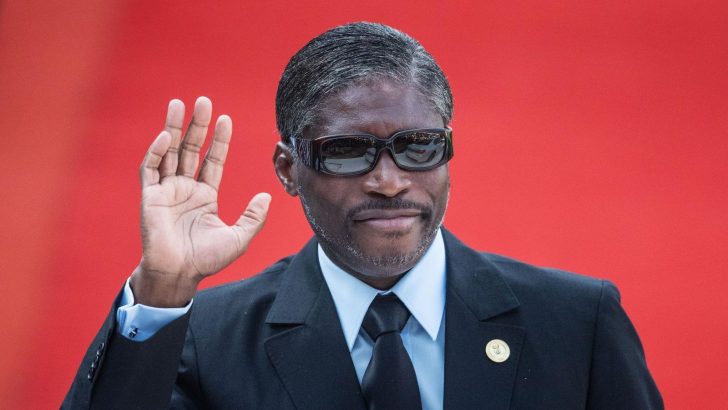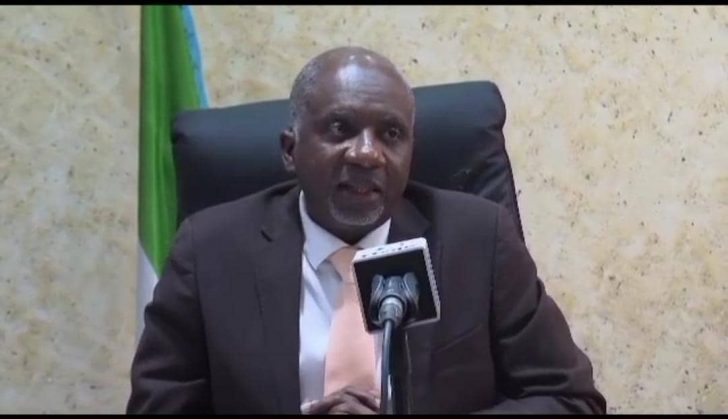Baltasar Ebang Engonga, a high-ranking civil servant in Equatorial Guinea, has found himself at the center of a scandal that has rocked the nation. Leaked videos allegedly showing Engonga engaging in explicit acts in his office have sparked outrage, leading Vice-President Teodoro Obiang Mangue to issue a stern warning to government officials.
The videos, widely shared online, have not only embarrassed the country but also triggered a national debate on ethics, corruption, and professional conduct.
The Scandal of Baltasar Ebang Engonga Shook the Nation
Baltasar Ebang Engonga, head of the National Financial Investigation Agency and a relative of President Teodoro Obiang Nguema, is no stranger to the spotlight. Known for his role in tackling financial crimes, he now faces allegations that are both personal and damaging.

Times / The videos reportedly show Engonga engaging in sexual acts with multiple women, including the spouses of prominent officials, within the confines of his office.
The fallout from these revelations has been swift. Vice-President Teodoro Obiang Mangue, addressing the scandal, condemned such behavior as a “flagrant violation” of the civil service code of conduct. His decisive tone underscored the severity of the situation and reflected his intent to restore public trust in the government.
Vice-President Obiang’s Stern Warning
Obiang did not mince words when addressing the issue. He made it clear that civil servants engaging in inappropriate behavior at work would face “severe measures.” His statement comes amid mounting public anger and concerns over the misuse of power and privilege by those in high office.
The vice president has since mandated the installation of surveillance cameras in government buildings to deter similar misconduct.
The administration's response highlights a broader issue of accountability in public office. By focusing on visible and immediate actions, Obiang aims to demonstrate that no one - not even a high-ranking figure like Baltasar Ebang Engonga - is above the law. The move has been met with mixed reactions, with some applauding the crackdown and others questioning the government's priorities.
The Viral Spread and Internet Clampdown
The leaked videos went viral on social media, flooding platforms with explicit content that further fueled the scandal. In response, Vice-President Obiang ordered telecommunications companies to curb the spread of these videos, leading to severe disruptions in internet services across the country.
Residents reported difficulties in downloading images and accessing online platforms, raising concerns about censorship and freedom of information.
While the clampdown on internet usage is framed as an effort to protect the country's image, critics argue it reflects a broader pattern of control. This drastic measure, though aimed at stopping the video's spread, has left many questioning whether the government’s actions are about public decency or damage control.
A Tarnished Reputation
For Baltasar Ebang Engonga, the scandal extends beyond personal embarrassment. As head of the National Financial Investigation Agency, his role is crucial in combating financial crimes such as money laundering. His alleged misconduct undermines not only his credibility but also the institution he represents.
The leaked videos have prompted questions about the ethics of those tasked with upholding the law, exposing the deep-seated challenges in Equatorial Guinea’s governance.

GTN / Adding to his woes, state television reported that Engonga was already under investigation for corruption when the videos surfaced.
This dual scandal of financial impropriety and moral misconduct paints a damning picture of one of the nation’s most prominent officials, threatening to overshadow his professional achievements.
Public Health Concerns
The fallout from the scandal has taken an unexpected turn. Equatorial Guinea’s chief prosecutor, Anatolio Nzang Nguema, stated on national television that Engonga could face prosecution if found to have contracted a sexually transmitted disease. Such an offense, according to the prosecutor, would constitute a crime against public health.
This stark warning adds another layer to the controversy. It suggests that the repercussions for Engonga could be both legal and personal.
Nicknamed “Bello” (Spanish for beautiful) for his good looks, Engonga's public image has been irrevocably damaged. The once-respected civil servant is now a symbol of the excesses and ethical lapses that many believe plague the country’s elite.
